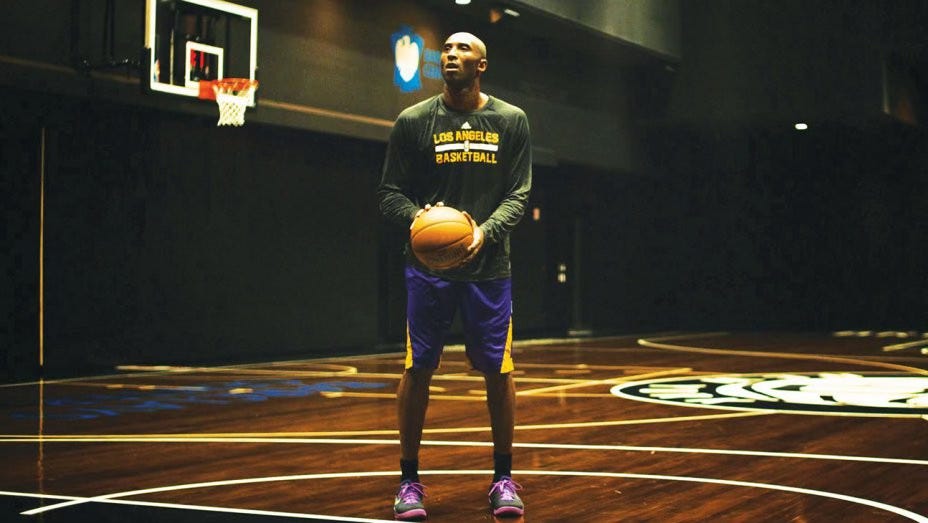Getting Your "No" Back
The human mind is not designed for the level of stress that most of us are under.
I use the word “stress” on purpose. I’ve always loved Kobe Bryant’s perspective on stress vs pressure. Kobe believed that stress comes from the lack of preparation, whereas pressure is something athletes experience when they are prepared but face high-stakes situations. He believed that thorough preparation and practice reduce stress because they build confidence and readiness. Pressure, on the other hand, is a privilege that comes with being in situations where one's skills and preparation are tested at the highest level.
So if that’s true, what is the lack of practice and preparation that is causing all of this stress? After all, most of have us have ready access to project planning tools, to-do list apps, time management techniques, and so much more - for both work and home. Yet the crushing amount of stress continues.
Let’s go the neuroscience of stress. In simple terms, chronic stress activates all of the animal traits in the brain and flips the neocortex to focus on fixing and reacting to what the animal is feeling. In short, our nervous system feels stress - which is reinforced by our neocortex telling stories about this stress - usually with some variation of “should”, “if”, “when” statements.
The more we stay in this mode, the more reality is distorted. And the more reality is distorted, the more our priorities and values get distorted. Then stress affects us spiritually and it becomes the death of joy by a thousand demands for our attention, our energy, our resources.
Our only “practice” becomes the practice of survival. Get through that meeting. Get that email replied to. Knock that thing off our to-do list. But it’s not really survival. This is not an episode of “Alone”. We are not actually in a survival situation. It’s the mind, soaked in cortisol and depleted of happy brain chemicals, telling us that we are.
One of the key indicators of consciousness is when our neocortex is managing the animal. This is what we mean by the feelings of clarity, confidence, compassion, curiosity, calmness, creativity, courage, and connectedness. Ah, yes. The famous 8 C’s of the Core Self! When our higher brain functions are in control, we experience a profound sense of alignment and balance. However, under chronic stress, this equilibrium is disrupted, leading to a disconnect from our true selves.
What does this look like to lose our true selves to stress? Well, it likely varies for each of us depending on many factors, but here is what it looks like for me …
Task Obsession: Becoming overly fixated on completing tasks and checking off to-do lists, often at the expense of quality, creativity, and meaningful engagement. This can lead to burnout and a perpetual feeling of being overwhelmed.
Chronic Negativity: Adopting a pessimistic outlook where I constantly expect the worst, criticize myself and others, and struggle to see the positive aspects of life. This creates a toxic mental environment that drains energy and joy.
Spiritual Apathy: Losing touch with my spiritual beliefs and practices, resulting in a sense of emptiness and lack of purpose. This disconnect can make me feel adrift and ungrounded, impacting my overall well-being.
Eating My Feelings: Turning to food for comfort during stressful times, leading to unhealthy eating patterns, weight gain, and guilt. This coping mechanism fails to address the root causes of stress and compounds negativity and erodes self-worth.
Neglect of Self-Care: Ignoring physical, mental, and emotional health needs, resulting in poor nutrition, lack of exercise, sleep deprivation, and overall decline in well-being. This neglect undermines my ability to function effectively and maintain a balanced life.
So then what is the practice that turns stress into pressure?
We have to get our “No” back.
Saying “No” is reclaiming the power to choose. It’s an act of autonomy and individualism, a radical expression of self-respect. When we forget how to say "No," we get swamped with obligations that drag us down like Marley's Ghost, causing stress to take over and knocking us off center.
Reclaiming our “No” is about fiercely setting boundaries. It’s about knowing your limits and sticking to them unapologetically. Saying "No" isn’t weakness—it’s strength. It’s recognizing that your time and energy are sacred and must be guarded. By embracing our "No," we honor our true selves, maintain our well-being, and create space for what truly matters in our lives.
Two key concepts can help with getting our “No” back: Window of Capacity and Window of Tolerance.


